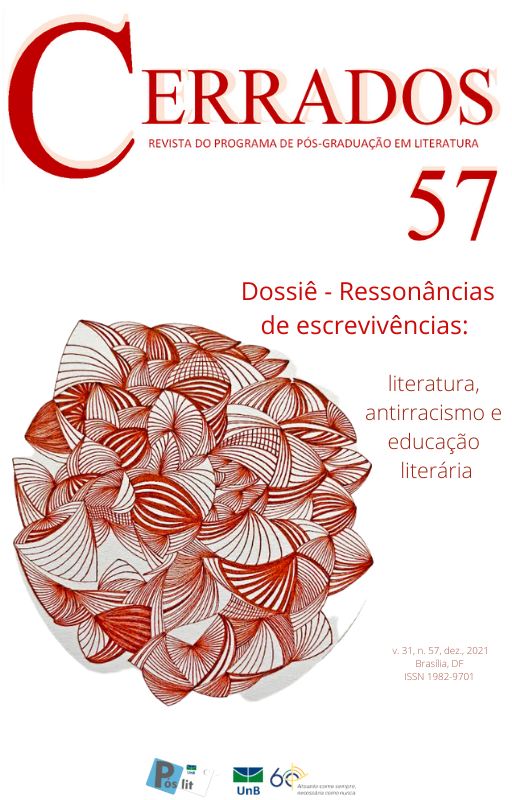Vol. 30 No. 57 (2021): Resonances of escrevivência ("biographilliving"): literature, anti-racism and literary education

We have witnessed the consolidation of analytical and narrative matrices that recognize race and gender as structuring axes of inequalities in the world. This accumulation makes it increasingly difficult to ignore that our society authorizes the lack of commitment to the lives of negatively racialized individuals and groups, as well as women, making black women even more vulnerable to violence and silencing. Beatriz Nascimento, in the text "Our racial democracy" (1977), emphasizes that the issue is not to deny racial prejudice, but to build a conscious and critical reflection on the situation of our society. Sueli Carneiro problematizes, in the fundamental introduction of her doctoral thesis "The construction of the other as non-being as the foundation of being", the idea that it is necessary to be aware of the "hegemonic self". Carneiro calls for questioning the practice of our patriarchal and racist literary criticism and our literature class in the sense of erasing the colonizing universal. In the realm of literature, there is a vibrant current critique that is moving from the ability to recognize the power of black authorship as the source of Brazilian literature. Conceição Evaristo in her master's thesis Black Literature: a poetics of our Afro-Brazilianness (1996) and Cuti in her Black-Brazilian Literature (2010) present us with the guides of this brilliant thought. It is important to emphasize that black authorship has always demonstrated its power in its own means of dissemination, which includes black publishers, it is enough to remember that Cadernos Negros have been published independently since 1978. gender and race, this dossier brings essays and articles guided by the writing of black women and their relationship with literary criticism from all angles as plural as possible. It is important, in fact, to rethink more and more the place of black authorship in Brazilian literature not as a contribution, but as a formation. From the studies of whiteness, it is also necessary to open spaces to rethink the structural and structuring determinations of racism in our field of work, from our daily practices in the academy to the elaboration of the curricula of language courses and also of basic education.
Therefore, there is also a debate on how Portuguese Language courses and schools are working with the Education Guidelines and Bases Law (LDB - Law n. 9394/1996), with regard to the changes promoted by Laws n. 10.639/2003 and no. 11,645/2008. The role of Portuguese teachers in the practice of a re-education of racial relations is connected with the formation of readers to exercise criticality, memory and imagination, which points to possibilities for interdisciplinary action. In this volume, we bring together voices from the pluriversal, non-hegemonic, to feed these analytical matrices, whether as a subject or as an ally in this agenda that is of the whole society.
Published:
2022-02-14


